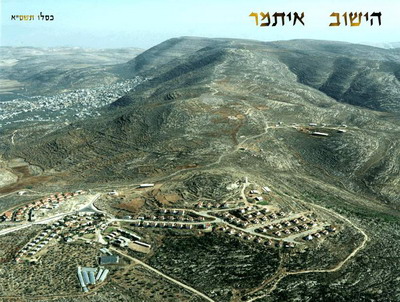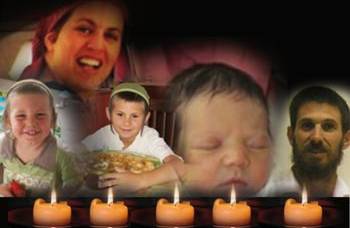1. A new peace is needed By Ari Shavit
Extracts:
Now that the old peace is dead, we must quickly replace it with a new,
realistic peace.
By Ari Shavit Haaretz Published 03:42 09.02.12
http://www.haaretz.com/print-
edition/opinion/a-new-peace-
is-needed-1.411838
First the old peace was lightly wounded. After Israel gave the Palestinians
most of Gaza, the first bus blew up at Dizengoff Square. After Israel gave
the Palestinians Nablus and Ramallah, buses started blowing up in downtown
Jerusalem and Tel Aviv. And after Israel suggested that the Palestinians set
up a sovereign state on most of the occupied territories, they responded
with a wave of terror. And as suicide terrorists were running amok in our
cities, it started to dawn on people that maybe there was something
defective about the promise of a great peace.
Then the old peace suffered moderate wounds. After Israel withdrew from
south Lebanon, a Shi'ite missile base was set up there, which threatens the
entire country. And after Israel withdrew from the Gaza settlements, the
area became an armed Hamastan that continually attacked the south.
Both of these bold, unilateral and justified withdrawals yielded difficult
results. When Qassam rockets fell on Sderot and Grads started landing in
Ashdod and Fajr missiles hit Haifa, there started to be butterflies in our
stomachs regarding what we might expect after the really big withdrawal.
After that, the old peace was seriously hurt. Tzipi Livni sat with Ahmed
Qureia (Abu Ala ) for a full year, but Qureia signed nothing. Ehud Olmert
offered Jerusalem to Mahmoud Abbas, but Abbas just disappeared. The fact
that the moderate Palestinians were turning their backs on the most generous
peace offerings Israel had ever made raised gloomy suspicions about their
intentions. Were they really willing to divide the country into two national
states that would live side by side with one another?
Now the old peace is dead. Really dead. The Islamic revolution in Egypt has
removed the southern anchor of that promised peace. The murderous oppression
in Syria has neutralized its northern guarantor, and the gradually warming
relationship between Fatah and Hamas eliminates its central axis.
Anyone who observes the reality that has emerged around us now understands
what was not fully understood a year ago: That the Arab awakening has killed
the diplomatic process. In the coming years, no moderate Arab leader will
have enough legitimacy or power to sign a peace agreement with Israel. What
we've yearned for since 1967 and what we believed in since 1993 simply isn't
going to happen. Not now, and not in this decade.
2. Who Are the 'Syrian People'?
http://www.israelunity
coalition.org/news/'p=7760
Yedidya Atlas - FrontPage Magazine, February 9th, 2012
Extracts:
Speaking at the UN Security Council last week Secretary of State Hillary Clinton
declared, 'It is time for the international community to put aside our own
differences and send a clear message of support to the people of Syria.' And the
day after the Security Council vote with Russia and China vetoing the resolution
to adopt the Arab League plan, a frustrated Mrs. Clinton repeated her call to
'support the Syrian people's right to have a better future.'
The problem of Mrs. Clinton and others who express such concern for the ongoing
internecine violence in Syria is that they constantly issue pronouncements about
the 'Syrian people' as if it was a homogeneous national grouping. Her ignorance
was further demonstrated when speaking to reporters during a visit Sunday in
Bulgaria. She said: 'the international community had a duty to halt continuing
bloodshed and promote a political transition that would see Mr. Assad step
down.' Can she honestly believe Basher al-Assad will simply agree to resign?
If one is to ever develop a coherent and attainable goal-oriented Syrian policy,
one first has to understand the various groupings and allegiances at play.
The 'Syrian people' is a composite of religious and ethnic groups who
historically oppose each other. The dominant group, approximately two thirds of
the population are Sunni Muslims; 12 percent are Alawites; 9 percent are Kurds;
10 percent are various Christian sects (Arab Christians, Assyrians and
Armenians); and the remainder are a hodgepodge of religio-ethnic groups
including Druze, Turkmens and Circassians.
Let's focus on the Sunni, the Alawites and the Kurds. The Sunni majority
includes the Muslim Brotherhood. It is subjugated by the ruling Alawites led by
the al-Assad family. The Sunni majority, which lost power in the takeover of
Syrian rule by the Alawite-dominated secular nationalist Syrian Baathist Party
in a 1963 coup, began to cause increasingly violent unrest led by the Muslim
Brotherhood. This later developed into open revolt.
In 1980, after an assassination attempt against President Hafez al-Assad failed,
he came down on them like a ton of bricks, literally. In 1982, the city of Hama,
a Muslim Brotherhood stronghold, was destroyed by regular Syrian army forces,
including tanks and artillery, commanded by Rifat al-Assad, Hafez's younger
brother. An estimated 20,000 residents of Hama were killed. The revolt was
quelled and the Alawite al-Assad family continued to rule.
However, the real dispute goes way back. The Sunni majority view the Alawite
minority as heretics. The Alawites, or Alawi as they called themselves because
of their adherence to Ali (the Muslim prophet, Mohammad's cousin and
son-in-law), were originally called by the Sunnis the 'Nusayri' after the
Shi'ite Ibn Nusayr in the 9th century, indicating their break with Islam. After
1920 and French rule in Syria (which included Lebanon), the persecuted Alawites
ingratiated themselves with the new rulers.
The French encouraged Alawites to join the French-commanded Syrian army and
dominate the officer corps as a counterweight to the hostile Sunni majority.
This subsequently set the stage for the Alawite dominance of the Baath Party and
the 1963 takeover of the Syrian government.
The Kurds, while only 9 percent of the total Syrian population, comprise the
majority of the Jazira province, and are affiliated with major Kurdish
populations in neighboring Iran, Iraq and Turkey. Historically, the Kurds once
ruled their own land known as Kurdistan which included eastern Turkey, northern
Iraq, northwestern Iran and northern Syria. The Kurds in all of these countries
are persecuted by the current ruling regimes in their respective countries.
In 1957 the KDPS (Kurdistan Democratic Party of Syria) was founded. .. In 1961,
after the dissolution of the UAR ' United Arab Republic with Egypt, the Syrian
government decided to 'recognize the Kurds' as a separate entity and in the
summer of 1962 conducted a special population census of the predominantly
Kurdish province of Jazira. All of the identified Kurds were stripped of their
Syrian citizenship and declared 'aliens.' At the same time a media campaign was
launched against the Kurds with such slogans as 'Save Arabism in Jazira' and
'Fight the Kurdish Threat.' These policies coincided with the beginning of
Mustafa Barazani's Kurdish uprising in Iraq and the discovery of oilfields in
the Jazira province. In the summer of 1963, Syrian forces joined with the Iraqi
military in attacking the Barazani-led revolt to reestablish an independent
Kurdistan.
Syria is the scene of an ongoing civil war of sorts between the Sunni majority
led by the Muslim Brotherhood and the minority Alawite controlled regime led by
the al-Assad clan with various minor religio-ethnic players scattered over the
field. If the al-Assad regime falls, it is not merely the al-Assad family that
is in trouble, the entire Alawite population can expect similar or worse
persecution by the Muslim Brotherhood led Sunnis as they attempt to turn the
clock back to a modern version of the Ottoman period. Bashar al-Assad is
fighting for both Alawite dominance and survival.
3. Palestinian Authority Funds Land Grab
in Samaria
http://www.israelunity
coalition.org/news/'p=7759
Tzvi Ben Gedalyahu - Arutz-7, February 8th, 2012
Extracts:
The Palestinian Authority in the past decade has taken over thousands of acres
of land that is not under any private ownership but which Israel has in effect
surrendered by not acting against Arab and international leftist groups who
routinely take over farmland that either lay fallow or had been farmed by Jews.
The 'benign neglect' policy of Israel has allowed the Palestinian Authority,
funded in large part by the European Union, to become a dominant presence in
areas of Jewish settlement.
European funds are used to pay Arabs to live in new and unregulated communities,
many of which begin with only one house and quickly expand into an entire
neighborhood.
The new Palestinian Authority effort continues a trend blocking against any
pioneering efforts by Jews in Judea and Samaria.
4. Former Army Officer Says Syrian
Troops Used Chemical Weapons
http://www.israelnationalnews.
com/News/News.aspx/152730
An officer who recently defected from the Syrian army: Syrian security forces
are using non-conventional weapons against protesters.
By Elad Benari
First Publish: 2/14/2012, 5:45 AM
Extracts:
An officer who recently defected from the Syrian army claimed on Monday that the
Syrian security forces are using non-conventional weapons in the crackdown
against protesters.
The officer, Captain Abd al-Salam Ahmed Abdul Razek, told the Al-Arabiya
television network that President Bashar Assad's security forces were using
chemical weapons against the protesters, under the supervision of Russia and
Iran.
Razek, who served in the Syrian army's chemical warfare unit, said that the
Syrian military used nerve gas - which is prohibited under various international
treaties - to facilitate the entry of troops to the city of Homs.
He added that the army also possesses toxic substances which originate in
Russia, and said that a small amount of these materials could lead to widespread
destruction of an entire population. Razek noted that the use of the chemical
weapons was carried out under the supervision of Russian and Iranian experts,
who instructed the army when and where to use it.
Meanwhile, at least 43 people were killed in Syria on Monday, Israel's Channel
10 News reported.
Russia and China vetoed an initiative in the Security Council on February 4 to
end the deadly violence in Syria and have Assad step down from power.
5. Arabs Ask Government: Save Us from
Our Violence
http://www.israelnationalnews.
com/News/News.aspx/152692
By Gil Ronen
Extracts:
Data released by the Ministry of Public Security shows that in 2011, Arabs ' who
make up less than 20% of Israel's citizens ' were the perpetrators in 67% of the
murder cases and in 70% of the attempted murders, as well as 52% of the arson
cases and 36% of the robberies.
While crime in general was on the decline in Israel in 2011, it spiked by 8% in
the Arab sector. Of 126 people murdered in 2009, 61 were Arabs. In 41% of 7,097
police investigations regarding aggravated assault, the suspect was an Arab.
According to the police statistics, while there are relatively few complaints
regarding domestic violence in the Arab sector, the actual incidence of the
problem is much higher among Arabs than in the rest of the population.
Prime Minister Netanyahu pointed to a connection between unemployment statistics
and violence. "The Arab sector is starting to live an unbearable life as regards
crime, murder, murder of women, robberies and harassment," he said.
|




